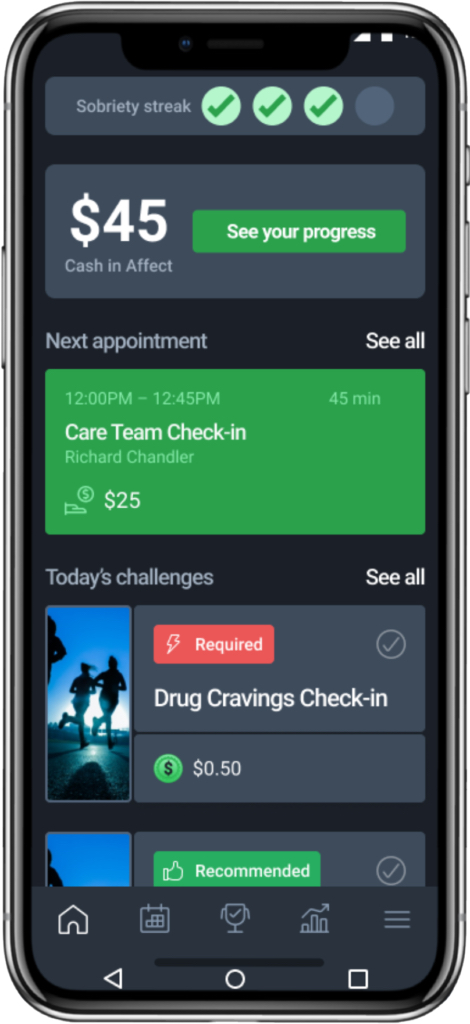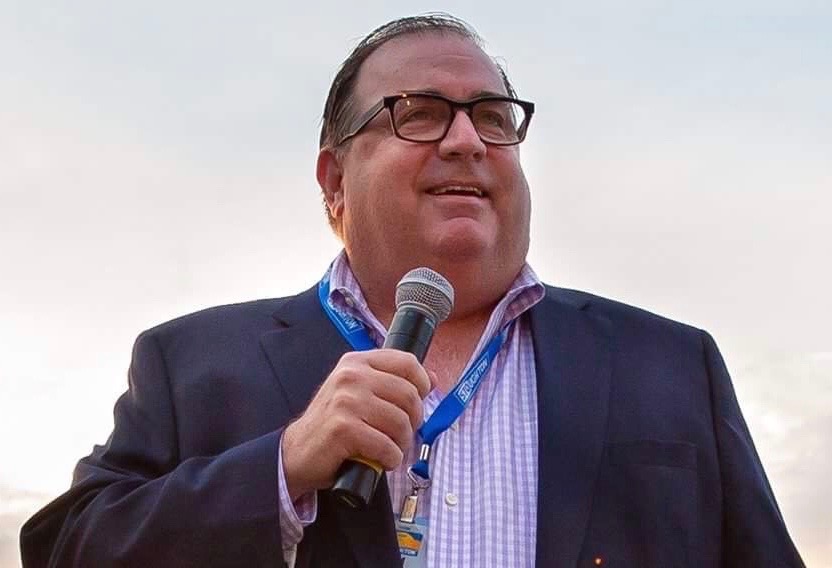Rooted in contingency management, the startup tech company thinks it has effective and accessible solutions
By Jason Langendorf
Fentanyl has spread across the United States like wildfire. Pain pill manufacturers and distributors are finally being held to task for their role in a national epidemic. Opioids are the primary driver of an overdose rate that has climbed to more than 100,000 annually. It’s a wonder that the public and policymakers ever have time to look away from those headlines to assess the damage being caused by stimulants.
Although a smaller percentage of the total U.S. overdose deaths are attributed to stimulants than opioids, the rates of methamphetamine deaths and use have nevertheless risen sharply in recent years, as have the numbers associated with cocaine. Meanwhile, as outsized attention and funding have been funneled toward initiatives addressing the opioid epidemic, stimulants remain the one major category of substances for which there is no Food & Drug Administration (FDA)-approved medication-assisted treatment (MAT).
When we started the program, we were very specifically focused on stimulant use disorder—methamphetamine, cocaine and crack—given the growing prevalence of usage and overdoses, but also the lack of treatment options.”
—Kristin Muhlner, CEO of Affect Therapeutics
It’s something that the brain trust at Affect Therapeutics has considered often. An 18-month-old New York City-based startup, Affect Therapeutics has created a model for treating addiction to stimulants such as meth and cocaine that is based on contingency management—incentivizing positive health decisions with cash or other rewards—and game theory. The idea: provide treatment for stimulants addiction that is both effective and accessible.
“A big focus for us is just looking at where the need is greatest,” says CEO Kristin Muhlner. “So when we started the program, we were very specifically focused on stimulant use disorder—methamphetamine, cocaine and crack—given the growing prevalence of usage and overdoses, but also the lack of treatment options for the community’s population.”
Thomas McLellan, PhD—founder of Treatment Research Institute, former deputy director of the White House Office of National Drug Control Policy and an advisor and board member for Affect Therapeutics—emphasizes that the company isn’t simply targeting an underserved market with a flavor-of-the-month strategy.
“I want to be clear that we just didn’t pick an option out of the air,” says McLellan. “This is the one that has shown the most effectiveness with stimulant users. That’s why we picked it.”
How Affect Therapeutics Works
Affect Therapeutics is an integrated recovery program accessed through a proprietary smartphone app, allowing clients to visit counselors and doctors via secure video conference. The user takes on daily challenges, receives assistance from an appointment manager and even manages drug testing through the app. And yes: Cash incentives for avoiding stimulant use are part of the mix.

Muhlner says Affect’s design drew some of its inspiration from a variety of sources that aren’t typically associated with the addiction space, including fitness progress tracking, game design and e-commerce.
“All of these different disciplines tend to drive off of a concept that is known as compulsion loops,” she says. “Which is, we want to try to get someone to demonstrate a behavior and to do that on various temporal scales.”
Beyond the modality of choice, the Affect Therapeutics delivery system is meant to reduce the friction of access to care and provide discretion for those clients who seek it.
“It’s no fun to show up in a crappy basketball gym and sit on a folding chair, right?” says Muhlner. “The opportunity to be in a comfortable and safe place is something our patients talk about as being something they appreciate a great deal.”
Out-of-pocket plans start at $99 a week, and clients can earn back as much as $599 in incentives through the program. Affect Therapeutics works with select insurance providers and has secured (or is seeking) Medicaid coverage in all the states it currently operates in, including California, Ohio, Kentucky and Arizona, where it is partnering with the National Institute on Drug Abuse (NIDA) and seeking participants in a clinical trial of its meth use disorder treatment system.
The company’s focus has been directed on the areas where its leaders believe it can do the most good, but expansion—and more evidence-based treatment for those in need—is the long-term goal. Muhlner says Affect Therapeutics will roll out an alcohol use disorder (AUD) program in the first quarter of 2022, and the company plans to make its services available to the entire country by the end of 2023.
“If you can get an attractive form of supportive care to individuals, the earlier you can do that—not when they bottom out, not only when they’re finally willing to take the kind of care that they never wanted in the first place—you can use an entirely different approach and try to meet them where they are,” McLellan says. “Give them the kind of care that will meet their needs and be engaging. You’ll save a lot of lives, save a lot of misery for families.”
Top photo: Eddie Billard













